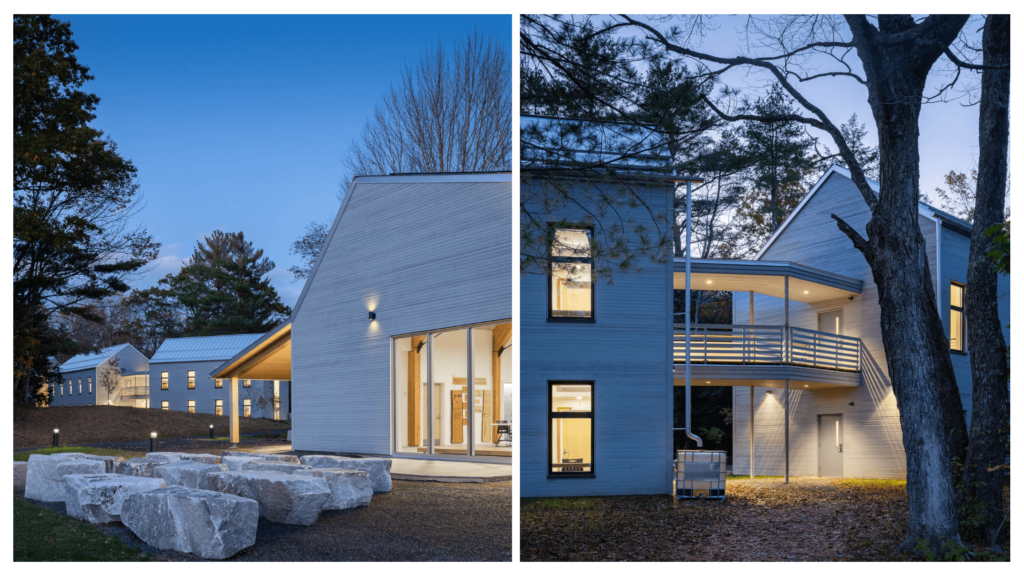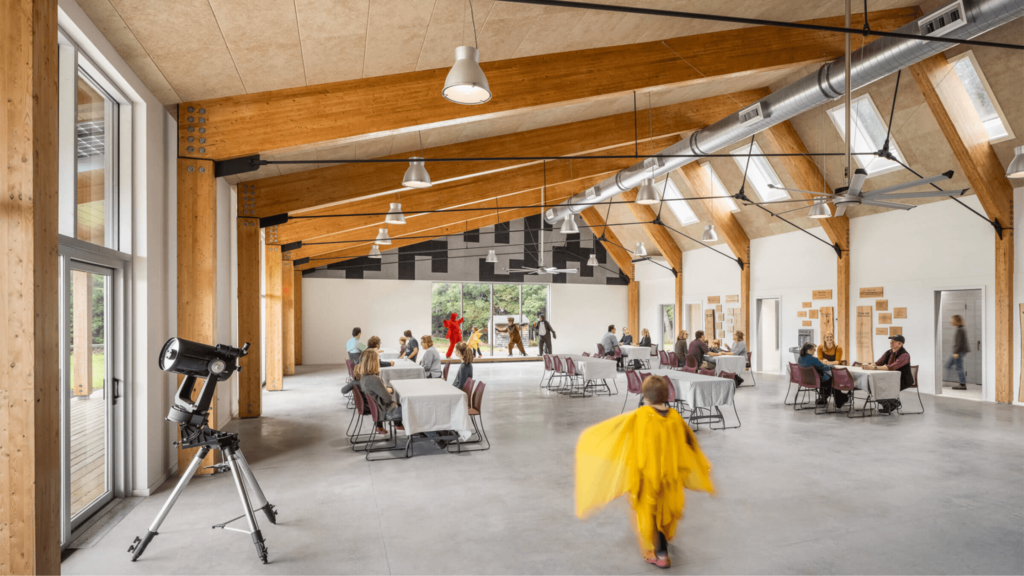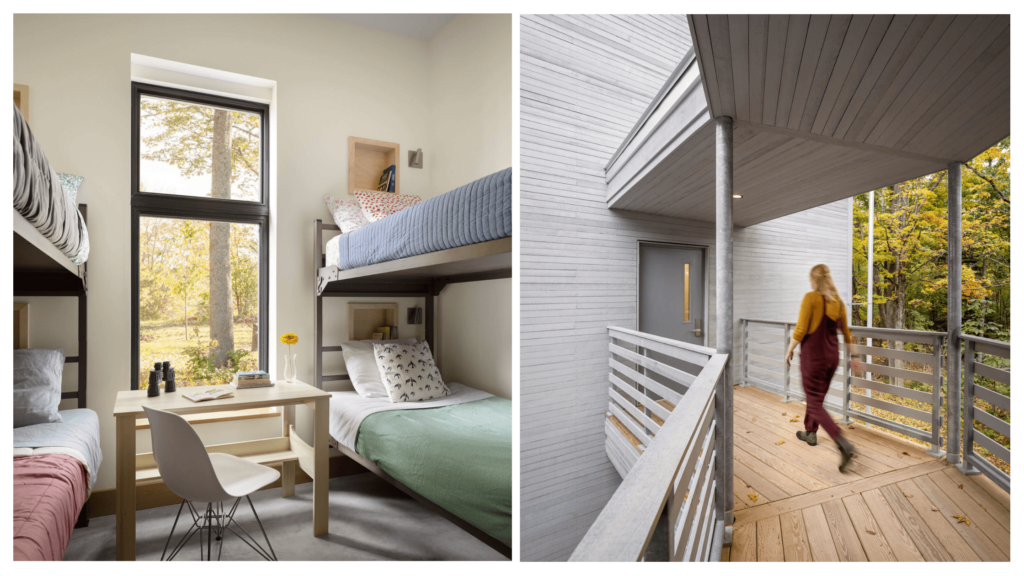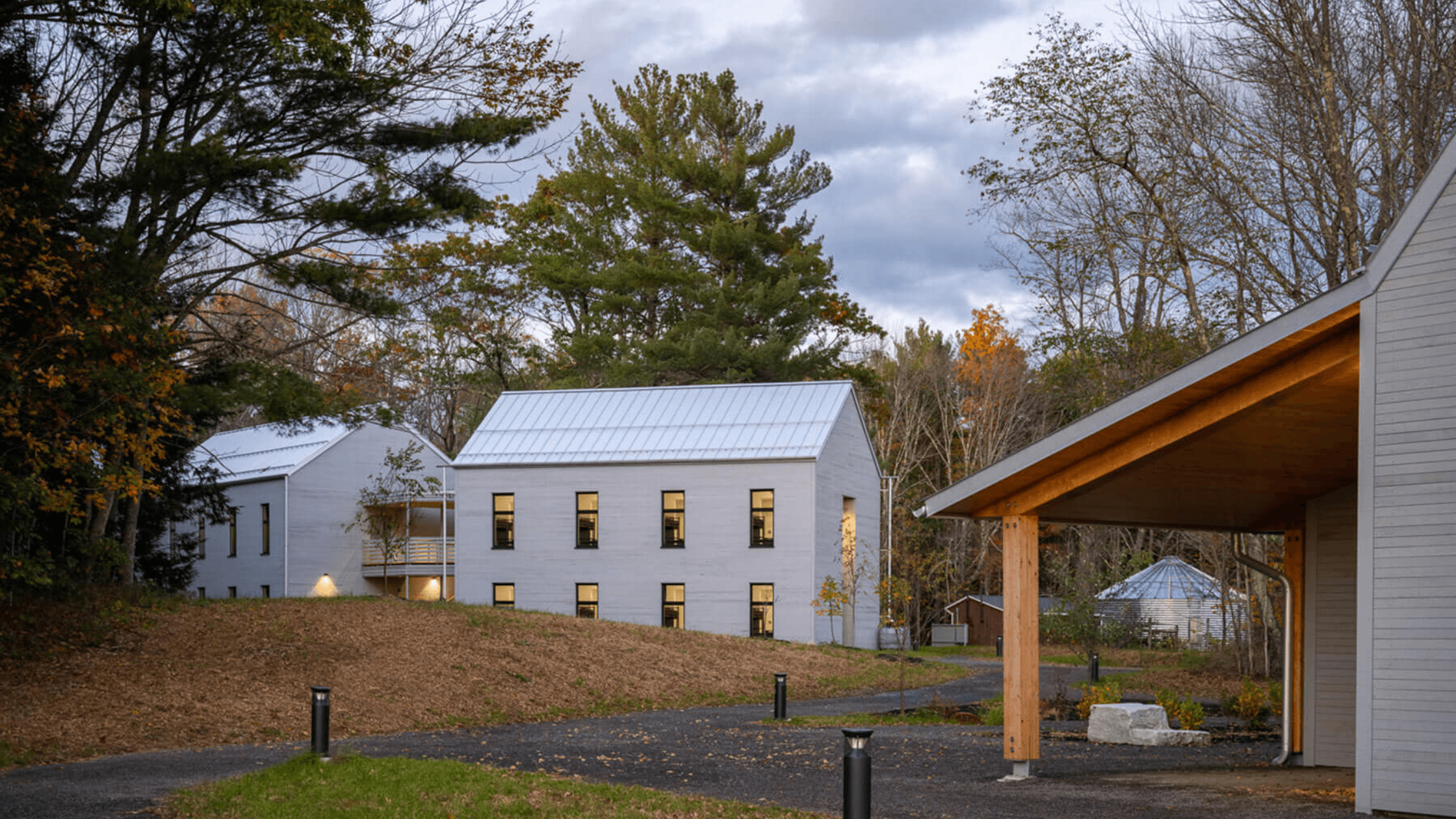Located in Saco, Maine, The Ecology School is a beacon of sustainable construction and environmental education. The 105-acre campus combines innovative green building practices with hands-on learning experiences, creating a unique environment where students of all ages can connect with nature and learn about sustainable living. The school teaches about the natural world and demonstrates how thoughtful design can minimize human impact on the planet.

Three Portland-based architecture firms—Kaplan Thompson Architects, Simons Architects, and Briburn—were hired to work on different aspects of the project. The client’s desire to strengthen the project through diverse design ideas drove this collaborative approach.
Despite their individual contributions, all three firms worked closely together throughout the project. “We compete on work as firms—and we are all within walking distance from each other—but we put that aside to fulfill this project,” said Jesse Thompson, AIA, founding principal of Kaplan Thompson. “There is a tradition in New England in the common good being regarded as greater than the individual, and there’s also a strong community work ethic at the school we tried to honor, too.”

Working alongside Saco-based landscape architecture firm Richardson & Associates, the team began by interpreting traditional campus models and balancing the school’s programmatic needs while minimizing their impact on the landscape. They collaborated with local ecologist Tom Wessels to survey the site and anchor the campus design to a line of maple trees, preserving the area’s ecological integrity.
The resulting 8-acre design reflects their commitment to sustainability and respect for the land. To the east, the school’s edible landscape provides produce for students and staff, while the dormitory buildings, designed by Briburn, rise modestly on a small hill to the west. These residential structures, inspired by local barns and connected by open-air walkways, blend seamlessly into the environment, giving the impression that they have always been part of the landscape. Additionally, the dormitory design accommodates the school’s flexible programming, which includes day-long STEM field trips, week-long intensive camps, and professional development workshops for teachers.

The Ecology School’s construction exemplifies sustainable architecture, as it meets the rigorous standards of the Living Building Challenge. The campus features net-zero energy and water use, achieved through various eco-friendly building techniques, including solar panels, rainwater collection systems, and composting toilets. The buildings are made from locally sourced materials and designed to maximize natural light, reducing energy consumption.
What truly sets The Ecology School apart is its mission to foster environmental stewardship through hands-on education. The curriculum encourages students to engage directly with nature, learning sustainable practices like organic gardening and exploring local ecosystems. By combining sustainable design with experiential learning, The Ecology School is an inspiring model for how education and environmental responsibility can thrive together.



1 comment